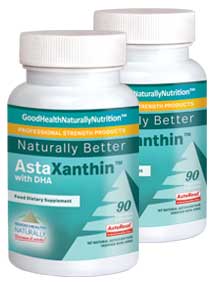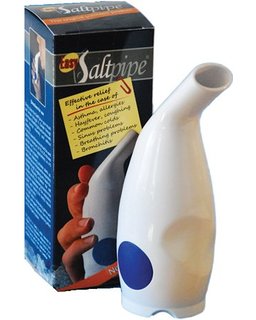Health News (Week 25- 2016)
By Robert Redfern
I’ve just landed back here in Mallorca after a quick trip to the UK and things are really heating up. There were many families on the same plane coming to Mallorca for their annual holiday and vacation. I know from experience they will be burnt by tomorrow evening as they cannot wait to get out into the sun on their first day and many will unfortunately stay in the sun for too long.
The problem is not the sun – it is too much of a good thing too fast. Plants need a dose of sun to thrive and so do we…but how to protect our skin?
AstaXanthin immediately came into mind, especially as I’m currently taking my daily two doses of AstaXanthin to protect my skin from the damaging rays. The sun here can exceed 40°C (104°F) inland where we live and there is no better protection for your skin than AstaXanthin.
The rays of the sun are just as powerful on the coast (they can be cooled by the breeze) so we still need to protect our skin wherever we are. You may remember from previous articles I advise not to use chemical sun creams that may be a cause of skin cancer, as shown in some studies. Instead I build up my skin exposure slowly over a period of time and do not sunbathe in the middle of the day.
Studies show some protection from burning, and more to the point, protection from long-term skin damage. I also use Derma Q-Gel Cream as an after sun cream to rebuild my skin and protect my skin DNA. It has the highest level of Co-Enzyme Q10 of any cream on the market (and that includes all of the fancy expensive creams in the stores).
You may think that this is enough of a good reason to use AstaXanthin; I have not even started. There are dozens of independent studies that cover a huge range of important uses. Before I list these benefits I want to explain why it is so powerful…
Studies show:
- Antioxidant – AstaXanthin is one of the most powerful antioxidants, 1000x more powerful than Vitamin E at preventing oxidation and 550x more powerful against free radicals.
- Cell Protection – It is able to protect both the inner layers of the cells as well as the outer layers.
- Anti-Inflammatory – Its anti-inflammatory effects are shown in many studies.
It’s unusual to get these three powerful protective effects in one but at least it explains why studies show it can help such things as:
- Skin Health
Human studies involving supplementation with Astaxanthin demonstrated significant improvement in skin elasticity, increased moisture content and a reduction in the appearance of fine lines and wrinkles. - Brain Diseases
There are many studies showing the protective effect on brain cells (four of the most successful ones can be seen at the end). - Cardiovascular
Human studies have shown cardiovascular benefits to include:- A significant decrease in the blood serum triglyceride.
- An increase in HDL-cholesterol levels with a corresponding increase in serum adiponectin.
- Significant increase in ankle brachial pressure index.
- A significant reduction in both systolic and diastolic blood pressure in healthy post-menopausal women.
- Significantly increased peripheral capillary blood flow via human blood rheology and
- Reduced lipid peroxidation in healthy non-smoking men, aged 19-33.
- Eye Health
This area has been well studied with ten human studies demonstrating reduced eye fatigue with Astaxanthin showing significant improvement in accommodation, visual acuity and critical flicker fusion. Two animal studies where uveitis was induced demonstrated significant reduction in cilliary body inflammation in subjects administered Astaxanthin. - Physical Endurance and Muscle Recovery
Studies have shown a 4mg dose of Astaxanthin significantly improved muscle strength, endurance and recovery, significantly lowering serum lactate levels after exercise with use of Astaxanthin. Supplementation showed a significant increase in peripheral blood flow and Astaxanthin was found to attenuate exercise-induced damage in the skeletal and heart muscle, including inhibition of neutrophil infiltration into the tissues.
 I guess you can see this is no ordinary supplement and whether young, old or seriously ill, everyone can benefit – so I trust I did not make it seem cosmetic when I said that sun protection is the main reason I take it.
I guess you can see this is no ordinary supplement and whether young, old or seriously ill, everyone can benefit – so I trust I did not make it seem cosmetic when I said that sun protection is the main reason I take it.
My advice is to make sure you can pronounce Astaxanthin (Asta-Zan-Thin) and consider carefully whether to add it to your daily health plan maintenance or at least take it for sun protection. It is suitable for children and is even safe for dogs too!
Good Health Naturally currently has this on offer, Buy One Get One Free and I recommend filling up your cupboard whilst this lasts, till the end of the month.
Click here for Astaxanthin Buy 1 Get 1 Free*
*Please note, special offer ends 30th June and is limited to 1000 bottles only,
after which normal pricing will resume.
If you go to my news website Naturally Healthy News and search for AstaXanthin you will also find many interesting and informative articles I have previously written over the years, on this super powerful antioxidant.
ADDITIONALLY: I trust you are already taking Active Life Capsules, which is the most complete multi-nutrient/vitamin available (x130 nutrients in One).
This also contains the highest amount of Lutein found in any supplement. Although you may know the benefits of Lutein for providing protection from macular degeneration in the eyes, it also helps protect the skin from excess rays. So extra protection if needed, in addition to Astaxanthin.
Remember… Serious disease needs serious adherence to a plan. More health information can be found by downloading my eBooks Click Here.
ASTAXANTHIN STUDY INFO:
- Astaxanthin protects against MPTP/MPP+-induced mitochondrial dysfunction and ROS production in vivo and in vitro. Food Chem Toxicol. 2011 Jan;49(1):271-80.
- Neuroprotective Effects of Astaxanthin in Oxygen-Glucose Deprivation in SH-SY5Y Cells and Global Cerebral Ischemia in Rat. J Clin Biochem Nutr. 2010 Sep;47(2):121-9.
- Astaxanthin inhibits H2O2-mediated apoptotic cell death in mouse neural progenitor cells via modulation of P38 and MEK signaling pathways. J Microbiol Biotechnol. 2009 Nov;19(11):1355-63.
- Astaxanthin protects neuronal cells against oxidative damage and is a potent candidate for brain food. Forum Nutr. 2009;61:129-35.




